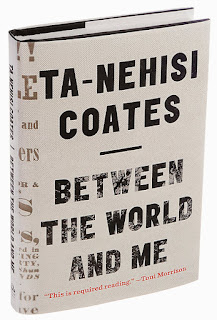What was God’s verdict? Who was guilty and who was innocent – in God’s eyes? God, after all, would know the truth and not be shackled by loopholes or procedure. God was there, at the crime scene, and God was inside both men’s heads and hearts.
We would want God to be on our side – and God actually is on our side. God is also on the other side’s side. God loves all, not just equally, but beyond our most expansive imagining. God wills nothing less than the rich flourishing of all people. What the police cam and forensic evidence can’t show was the crushing sorrow in God’s heart when it all came down.
God can do what the laws of the land cannot do – and I am sure this is God’s verdict on this controversial trial: the officer was guilty, and so was the shooting victim. And so are all of us. Even if you don’t believe in God, you can perhaps agree that all of us are guilty. We contribute to, and are simultaneously victims of a society that is afflicted with fear. We believe that force is the solution to conflict. We are obsessed with violence. We do not trust or even know people who are different. Even the most determined among us are a little bit racist. There is a problem between the police and people we’ve not worked out yet. We sigh or get angry about verdicts, wishing our side had emerged on top, all the while forgetting that as long as there are sides, we are all losers.
The man who was shot was guilty, getting into a mess he could have avoided, reacting in fear or aggressiveness (which are nearly identical), with his own prejudices and faulty judgments, a broken person, a sinner (we’d say in religion). And so was the officer. A broken person, a sinner, as prejudiced as any of us, judgments flawed, bedeviled by his own fears.
Here’s the other thing God knows. That officer was a precious, wonderful person, made in God’s image, with real innocence, a dreamer, beloved by family, a man who nobly chose a career in public service. A good little boy still lingers inside the grown man. If you could get to know him personally, you’d love him. If you could rewind, he would hope good would have come out of the encounter; he didn’t want anybody to die.
Same for the deceased. A beautiful human being, created by God, gifted, much loved, with an innocent kind of goodness and hopes of a good life. A kindhearted little boy dwelled inside the grown man. If you knew him well enough, you’d love him. If you could rewind, he would have wanted a good outcome that night.
Same for all of us, and our world. Our world, and life in it, is so beautiful – which is why we grieve its loss, and why we’re protective and look for simple wins and fixes. We are all so fragile. God made it that way, so we’d be tender with each other.
You know all this is true, because you know yourself. You make a mess of things, and you’re riddled with fear and you make lousy choices sometimes. But you’re good, you love and have visions of wonder. The grinning child in you has never packed up and left.
We live in a fallen world, where confusion, hurt, loss and injustice happen inevitably. So much then gets worse because we paint everything black and white, good guys and bad guys, the guilty and the innocent, the blamed and the blamers. Juries and judges have to do their thing; they can’t say Both are guilty, both are innocent, and so are we. Trial verdicts miss this every time, and we can’t change that.
But we can change ourselves. We can see as God sees. What if we all realized and remembered that everybody is broken, and everybody is amazing? We are family, or we might be. In every tussle in our family, I find I am right, and I am also so wrong, and in divulging both I can love. Call me naïve, but I believe we can love. We might preemptively fend off some crimes, and have fewer trials. God, we know, would love that.








.jpg)